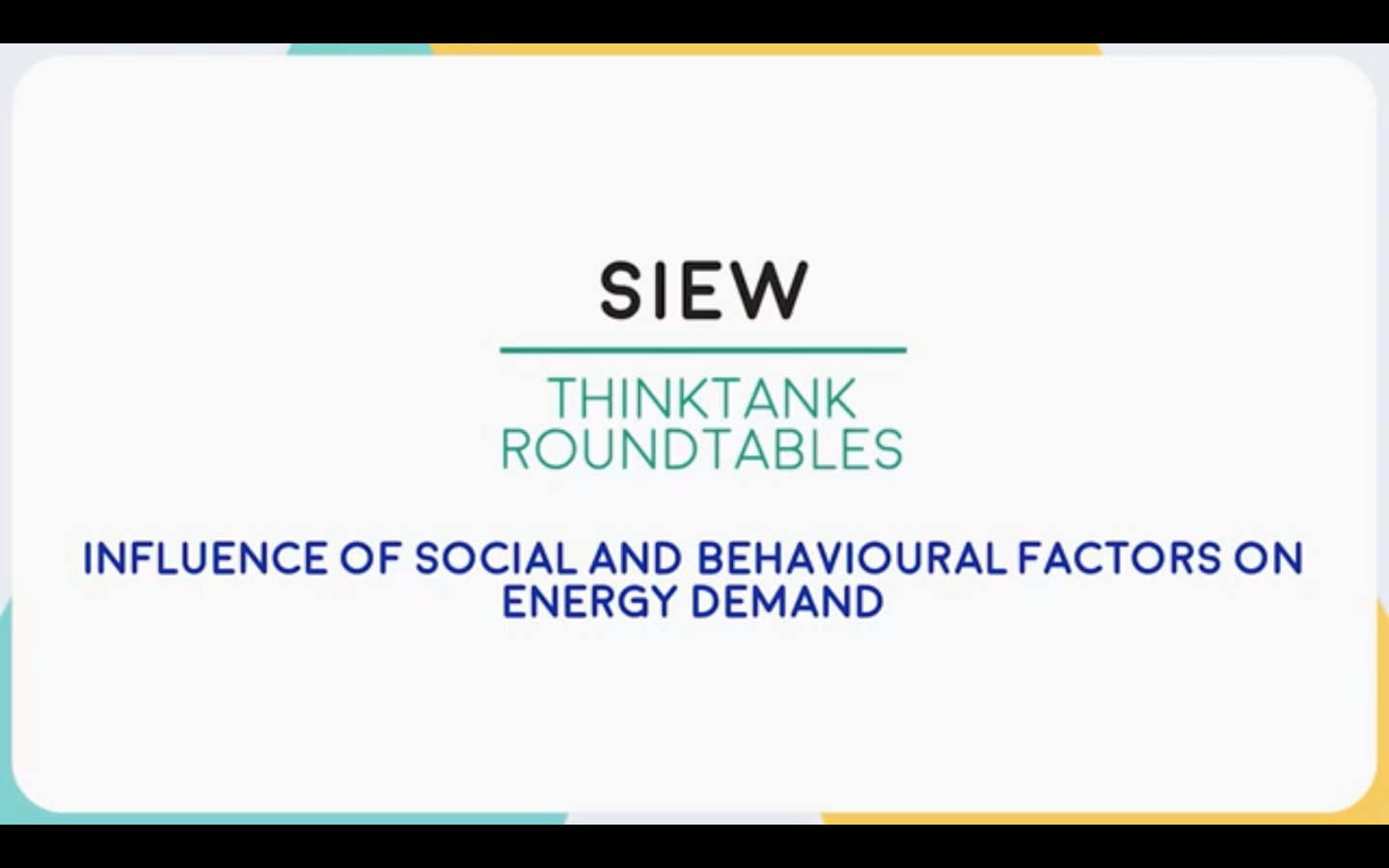
The SIEW 2021 Thinktank Roundtable session hosted by the Energy Studies Institute, provided a timely discussion on the potential and diversity of mechanisms for influencing energy demand via social and behavioural factors.
The objective of the session was to deepen the debate around how demand side management for energy, and better understand the influence of social and behavioural factors in relation to energy demand. In so doing more careful consideration can be given to the different policy levers that can be used to manage energy demand.
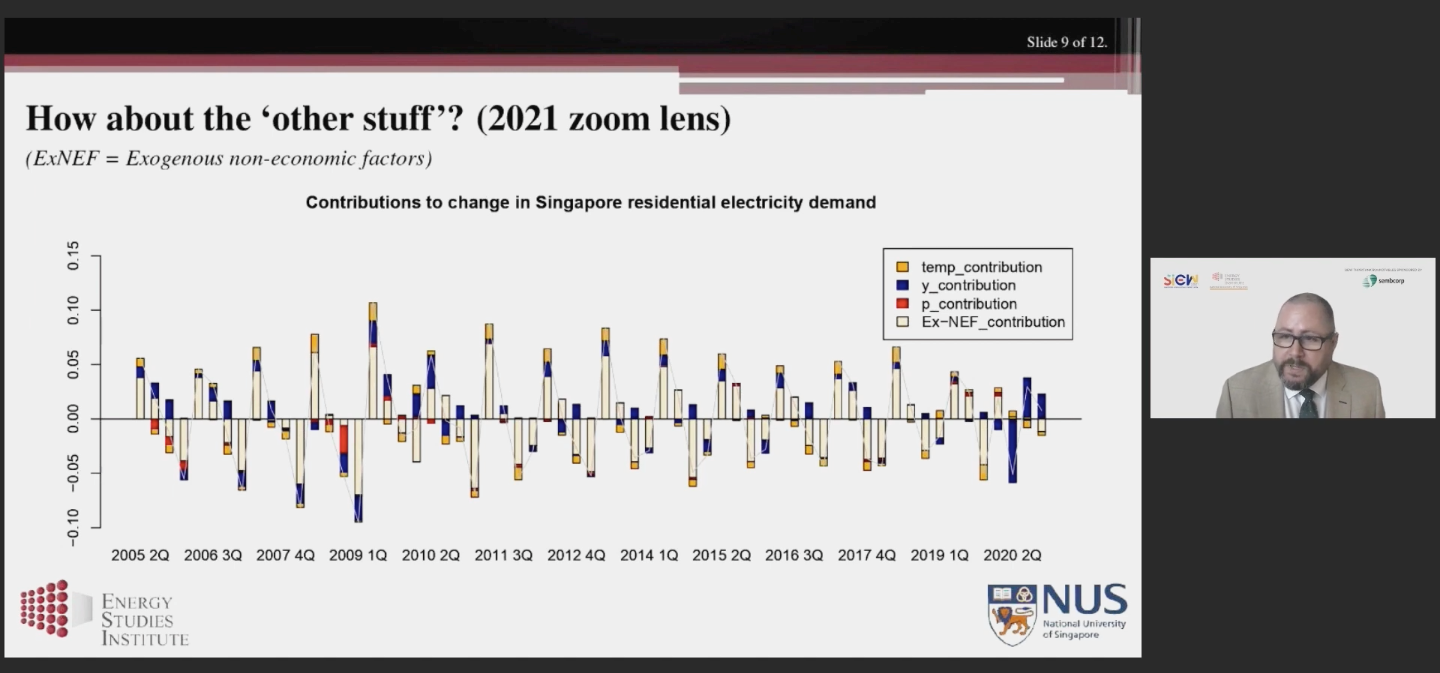
In this session, three prominent speakers joined session host Dr David Broadstock (ESI Senior Research Fellow). David provided a brief opening discussion to highlight how, at an aggregate level, it can be seen that large proportions of energy consumption (electricity specifically) are driven by factors that cannot be attributed to the standard economic drivers of prices and income levels, for example, that there is clear room for social and behavioural factors.
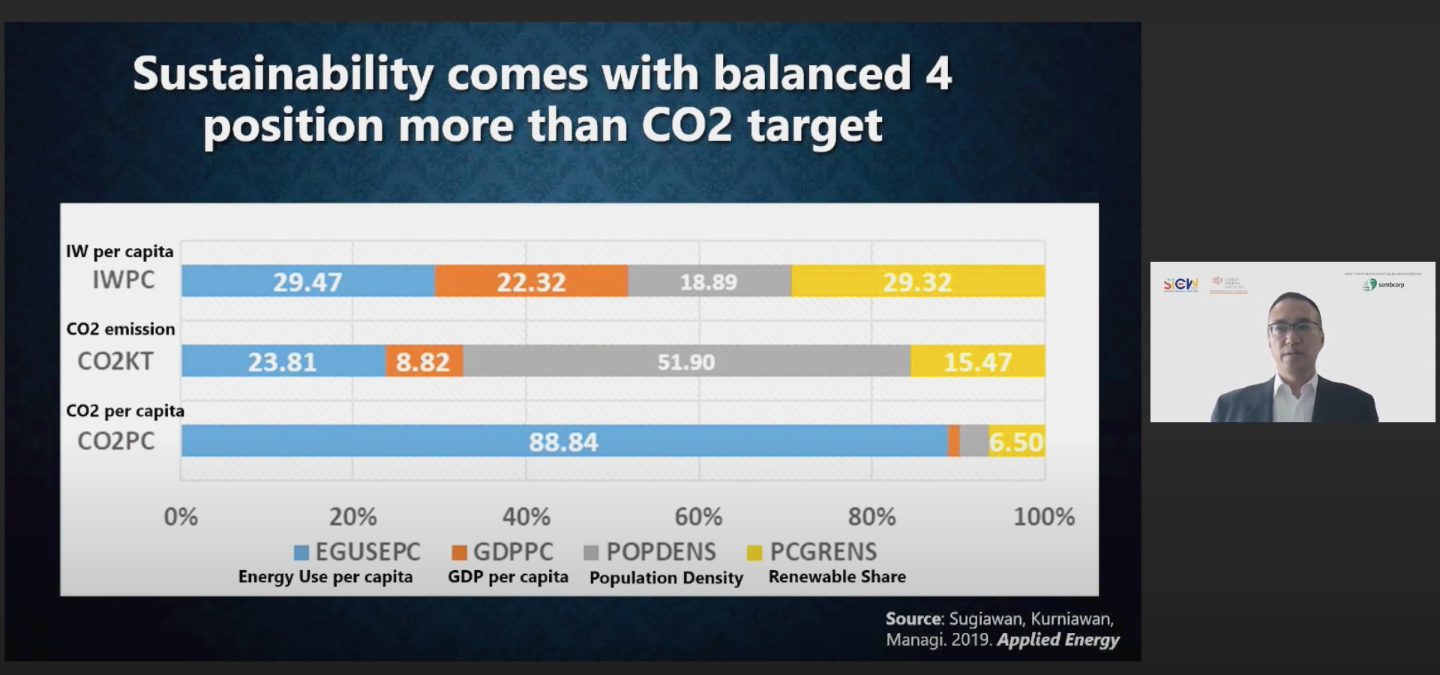
The first invited panellist was Professor Shunsuke Managi of Kyushu University, Japan. He raised attention towards the broader set of behavioural science issues influencing energy consumption patterns, offering a more concrete narrative and review of evidence on how ‘social nudges’ can result in significant changes in energy consumption. This was visible form evidence from around the globe. Among the conclusions was the recognition that ‘being compared to their peers and neighbors adds a certain social pressure’ towards the adoption of pro-environmental behaviour by consumers and ultimately that nudging consumer behaviours will increase social welfare.
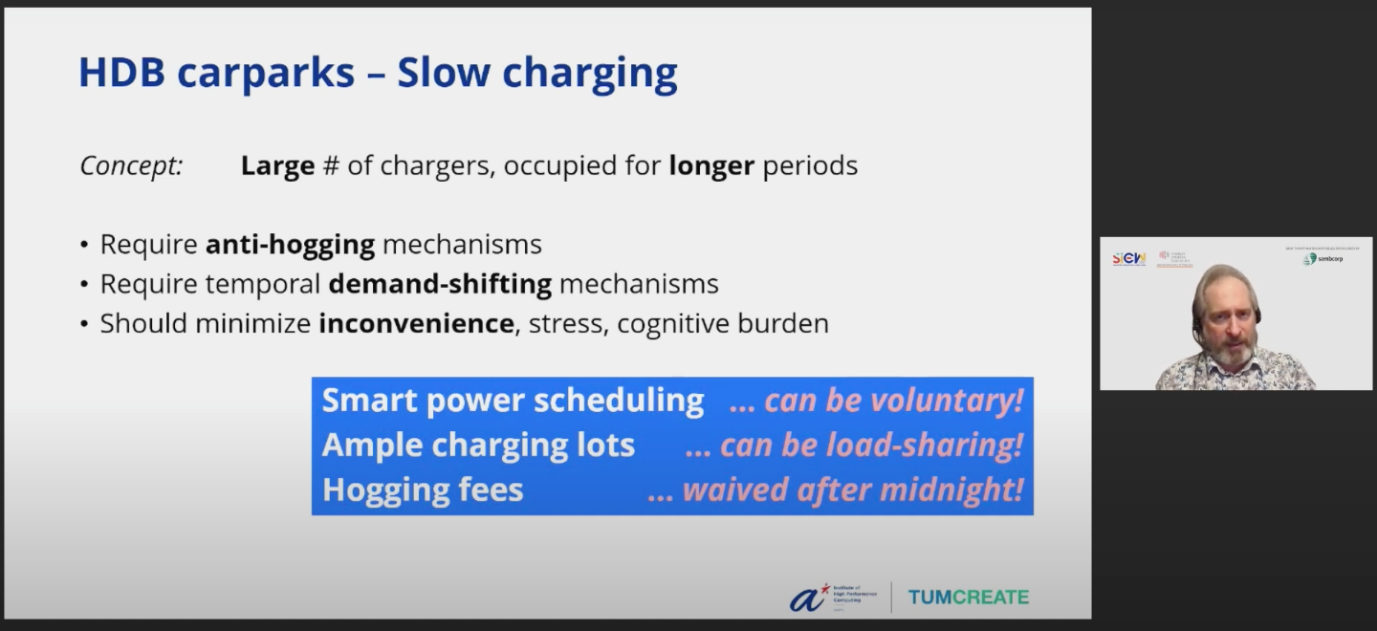
Discussion then turned towards a Singapore based project on EV charging, by Dr Ilya Farber, Senior Scientist, Institute for High Performance Computing, A*STAR, Singapore, who reported on current work from the Singapore Integrated Transport Energy Model (SITEM) project. This presentation draws attention to how preferences and attitudes impact EV charging patterns, and how this in turn impacts energy demand. In so doing Dr Farber opened discussion around the behavioural challenges to remain aware of, including that individual energy consumers may lack complete control over energy consumption patterns. He shared an example that a vehicle owner can only charge a car when a charger is available and cannot control if a charger would be available in a shared charging infrastructure. This lack of control can create uncertainties and potentially stresses that impact end-users’ decisions. Moreover undesirable usage patterns may exist for shared services that might benefit from additional policy intervention. For example, the case in which an EV charger remains occupied by a vehicle that has already completed it’s charging cycle. The possibility of anti-hogging mechanisms was introduced as a means to help minimize inconveniences caused in such cases.
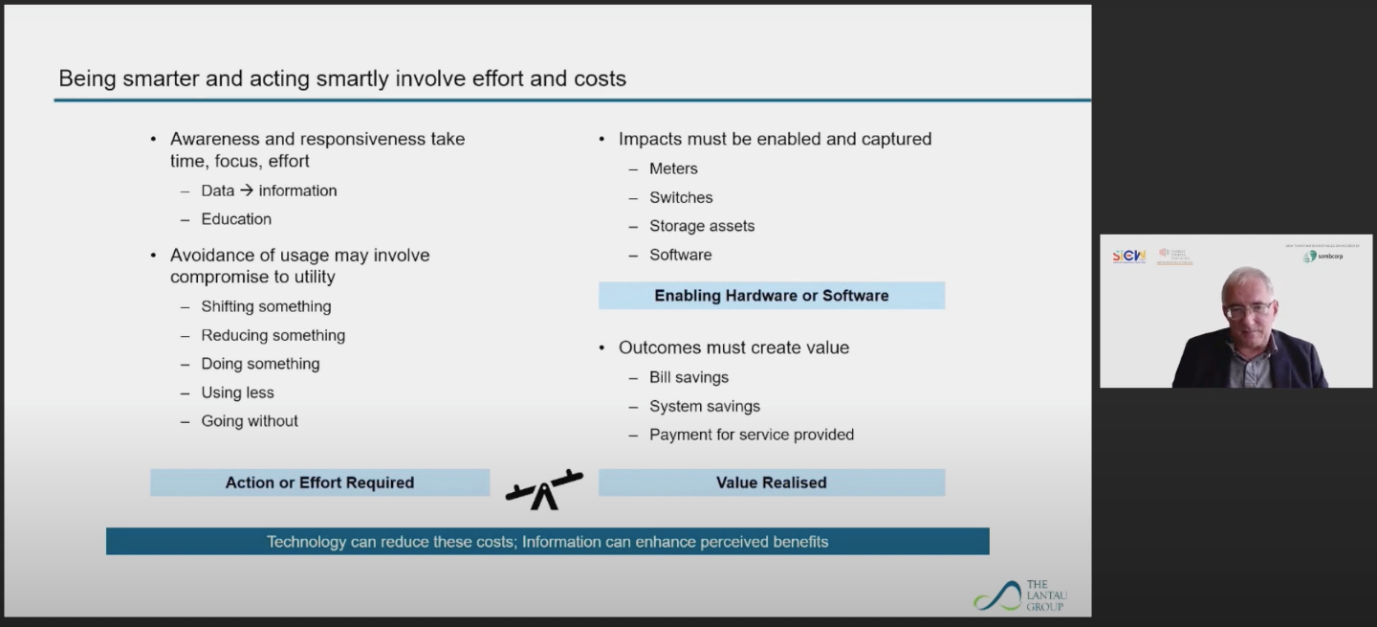
The final presentation was by Mike Thomas, Founding Partner and Managing Director, The Lantau Group, who highlighted the need to think beyond improving energy efficiency, or focusing on demand response or demand shifting in isolation of other factors. The maintained hypothesis was essentially that ‘’[our systems] are getting so much more complicated, more rich and complex with our decisions, that we can fix a problem and create another just by missing the linkages between two or more things.” Mike also reflected on the idea that smart energy usage is really about the use of energy in a way that generates maximum value, which does not necessarily mean using less energy. The natural progression of technology and growth of economies almost obviates the expectation that to ‘get to the future’ requires using more and more energy. Recognizing this helps sharpen our thinking around what smart energy use can mean and how it can best be achieved.

Following the short presentations, the ensuing panel discussion was rich and quickly expanded beyond the realm of consumer decision making, and recognized the need for an intimate awareness of the role of emerging technologies. There is a need to increase consumer choices to permit smarter energy consumption, but doing so requires more complex technology to be provided. The interfaces with these smarter technologies and wider set of consumer choices they provide, introduce complexities that make the human-technology interaction more difficult to optimize. There appears to be value in updating thinking on the role of simplified ‘human-technology’ interfaces (and interactions) as we move forward, so as to ensure trustworthy adoption of new smart technologies. The predictability of energy services outcomes will be important in this regard, i.e. the ability for end-users to guarantee minimum service level expectations.
It was broadly agreed that traditional energy pricing mechanisms will remain an important tool in guiding energy consumption, but that there is a clear role for social and behavioural factors. Defining the determinants of energy demand clearly and managing its components will be a key part in understanding the crucial role behavioural and socio-economic factors play in consumer choices. As Singapore continues its transition towards a smart and sustainable nation, there will be more opportunities to further expand the use of such factors and ‘nudges’ to regulate energy market activity, to reduce demand in the residential and industrial sectors. Yet the complexity that naturally emerges as a result of the expansion of consumer options, and introduction of new technologies, will necessitate a focus on human-technology interfaces. This will be needed to ensure sufficient end-user simplicity to ensure that search costs (i.e. the time an end-user takes to find the ‘best’ energy consumption options) do not make optimal energy consumption behaviours too costly for end-users to find. Policy will undoubtedly play an important role in this process.
Access the 2021 SIEW Thinktank Roundtable sessions on-demand here for more insights. Sign up to receive alerts on future SIEW events.